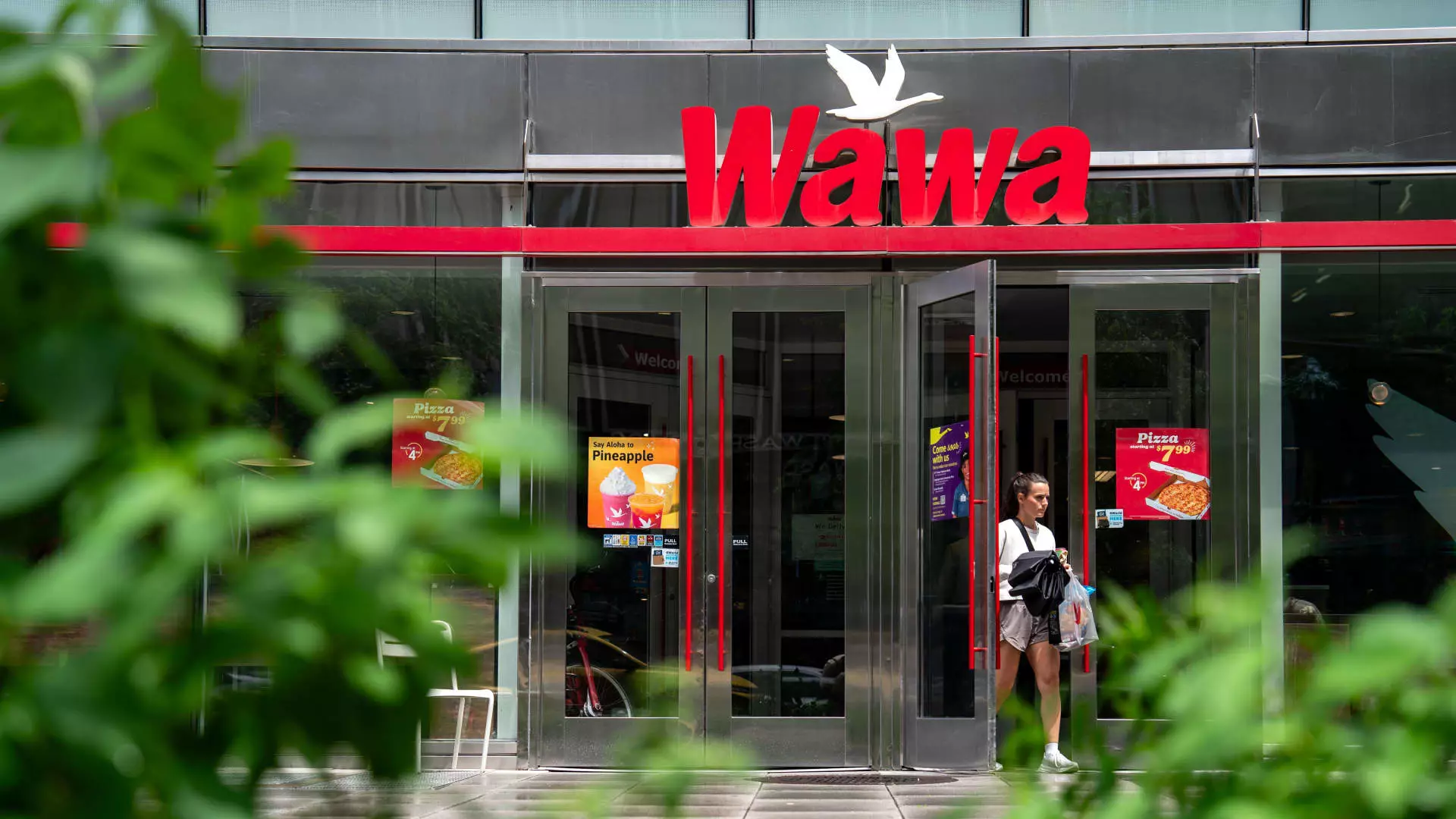In recent years, the once-unassailable dominance of fast-food chains in the morning meal arena has been increasingly challenged by a new breed of convenience stores. Data reveals a stark reality: while fast-food breakfast visits have stagnated or declined, convenience stores are enjoying a resurgence, capitalizing on their food-forward strategies. This trend isn’t mere happenstance; it signals a fundamental shift in consumer preferences, economic sensibilities, and the broader foodservice landscape.
The traditional fast-food model has long banked on offering quick, affordable, and convenient breakfast options designed to attract busy commuters. However, the landscape has evolved. Consumers, especially those watching their budgets and seeking quality, now see convenience stores like Wawa, Sheetz, and 7-Eleven as more than just stops for gas—they are becoming their go-to breakfast destinations. Their emphasis on fresh, made-to-order foods and strategic placement near transit hubs has challenged fast-food brands’ long-held territories. The figures are telling: convenience stores’ food service sales have ballooned to over $121 billion in 2024, with a significant portion stemming from breakfast and morning orders, which now threaten the fast-food breakfast dominance.
What does this mean for traditional chains? It indicates a global reset, where the once clear lines between quick-service food and convenience-grocery overlap increasingly. Customers are attracted to the broad array of options, freshness, and perceived value that these convenience stores now offer. Moreover, the social and economic context—rising inflation, sluggish job markets, and a culture focused on value—has only heightened their appeal. Consumers are no longer content with the minimalistic, standardized breakfast options found in most fast-food outlets; they are craving variety, quality, and affordability, all of which are offered more convincingly by convenience stores eager to innovate.
The Economic and Cultural Shift: Challenging Traditional Fast-Food Assumptions
For decades, fast-food chains like McDonald’s, Burger King, and Dunkin’ relied heavily on breakfast as an essential revenue stream. Their strategies often involved incremental menu improvements and promotional deals aimed at luring consumers away from home-prepared meals. Yet, beneath these efforts lies a sobering truth: breakfast remains the most economically sensitive part of the day, particularly for consumers under financial stress. Industry data reveal that fast-food breakfast traffic has consistently declined over the past three years, with a notable drop of nearly 9% in one quarter alone.
McDonald’s, the undisputed titan in quick-service breakfast, epitomizes this challenge. Despite its vast resources, even the giant struggles to maintain its market share. Its CEO acknowledged that many consumers now skip breakfast or choose to stay home to save money. The once-bustling morning rush at McDonald’s has visibly thinned, with breakfast accounting for a shrinking portion of customer visits. This predicament calls into question the long-held belief that convenience and marketing alone could sustain breakfast sales in a shifting consumer landscape.
The industry’s response has been telling. Chains are now called to adapt, borrowing tactics from the convenience store playbook—kiosks, innovative menu items, and bundling deals. However, the core issue remains: consumers increasingly prefer a broader variety of foods, valued at perceived better prices, often sourced closer to home or via local convenience options. In this environment, fast-food chains risk becoming outdated if they cling to their traditional models without significant innovation.
Similarly, cultural attitudes towards breakfast are changing. Today’s consumers prioritize quality, authenticity, and customization—traits historically associated with boutique cafes and local establishments. The image of a quick, mass-produced breakfast is losing its appeal, especially as more diners appreciate the niche freshness and variety offered by convenience stores stepping up their food game. The growing perception that convenience stores are “good bang for the buck” underscores a broader shift: consumers are increasingly prioritizing value and experience over mere speed.
Reimagining the Breakfast Battle: Who Will Win the Future?
As the market tilts toward convenience stores, fast-food chains face an urgent question: how to reclaim their breakfast dominance? The answer lies in innovation not just in menu offerings but in understanding the deeper needs of today’s consumers.
Fast-food giants are now scrutinizing their competition—particularly convenience stores—and attempting to mimic their strengths. They are experimenting with made-to-order options, leveraging technology such as self-service kiosks, and introducing flexible pricing strategies. Yet, these efforts often seem reactive rather than proactive, attempting to catch up rather than lead. The reality is that convenience stores have leveraged their proximity, personalized service, and diverse product ranges to solidify their position, making it harder for traditional fast-food outlets to assert dominance.
The industry also needs to rethink its core value proposition. Traditional quick-service breakfast often emphasizes speed and affordability but neglects the growing consumer desire for high-quality, fresh, and customizable options. Chains that succeed in the future will be those willing to overhaul their menus, investing in locally sourced ingredients, innovative recipes, and experiences that resonate on a personal level. Simply offering the same old sausage McMuffin and coffee is no longer sufficient.
One telling sign of change is consumer behavior. Surveys indicate that nearly half of those who purchase breakfast at convenience stores are actively replacing fast-food visits. The appeal isn’t just about price; it’s about variety, freshness, and the perceived authenticity of food. For many, convenience stores now fulfill a dual role—both functional and experiential. They are perceived as more aligned with modern values of health, sustainability, and quality.
Ultimately, whether fast-food chains can reverse their breakfast decline hinges more on their willingness to fundamentally transform their approach. The future belongs to those who recognize that breakfast is not just a meal but an opportunity—an opportunity to redefine convenience through quality, customization, and a stronger connection to consumer preferences. Otherwise, they risk fading into the background of a market that increasingly values variety and authenticity over speed alone.

